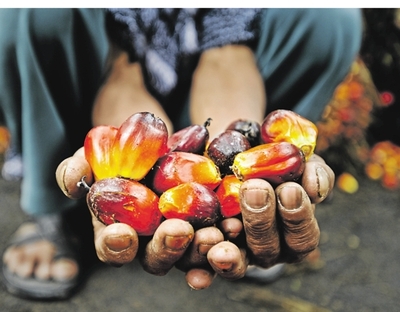 Photo: Info Afrique
Photo: Info AfriqueBusiness & Human Rights Research Centre | 7 May 2025
Socfin's response on Mbonjo case
Download attachment
Further to our response on Édéa/Apouh, please find SOCFIN’s focused reply concerning the Mbonjo community at the Dibombari plantation.
Our answers are based on the questions you asked and the allegations contained in the article you forwarded.
1. Expansion of Palm Plantings Since 2013, no new oil palm plantings have occurred in Mbonjo I (Division 1). All replanting has taken place within the historic blocks 74‑F4 and 74‑G4 (established in 1974), representing routine maintenance rather than concession expansion.
2. Access to Low‑lying Agricultural Lands Villagers retain unrestricted access to their bas‑fonds for food-crop and perennial cultivation. SOCAPALM’s only restriction is to safeguard High Conservation Value (HCV) and riparian buffer zones. For example, when Mr Emmanuel Elong sought to erect a pig and poultry facility under the label of a “farm school” adjacent to the local watercourse, SOCAPALM objected on valid environmental grounds to protect community water sources.
3. Authority Involvement Allegations of local authority complicity are best addressed by the officials themselves. SOCAPALM did invite the Traditional Chief of Mbonjo 1 to confirm his knowledge of Mr Elong’s unauthorized works; he denied awareness. Further inquiries should be directed to the Prefecture and Prosecutor.
4. Blocking of Synaparcam’s Farm‑School Project In mid-February 2025. SOCAPALM’s security identified an unauthorized structure within Block 13‑E3 (parcels 7–8), designated HCV land. Following independent bailiff validation, we issued a cease‑work notice and filed a trespass complaint. When construction persisted, we escalated to the Prefect of Moungo, who instructed judicial authorities to summon Mr Elong and halt the works immediately.
5. Administrative Injunctions: No new planting has taken place in Division 1 since 2013. Conversions of rubber to oil palm in 2024 (and planned in 2025) occurred entirely outside Mbonjo’s geographic area, after successful RSPO audits and certification approval.
6. Alleged Land Appropriation: SOCAPALM has not seized any smallholder plots. Indeed, we regularly pursue legal action to protect concession boundaries: in 2024, we filed a complaint against the Traditional Chief of Souza for planting four hectares of palms in an HCV zone—three weeks after a tripartite meeting where the Prefect explicitly warned against encroachments.
7. Intimidation of Project Proponents: Project leaders were summoned by the gendarmerie on the basis of SOCAPALM’s trespass complaint, under judicial and administrative instruction. SOCAPALM did not request these summonses.
8. Environmental Pollution: No internal or external complaints of water pollution linked to SOCAPALM have been recorded, nor did the RSPO audit reveal any stakeholder concerns. We conduct regular water-quality testing in boreholes and rivers, including at Mbonjo, with no pollutants detected. Notably, neighbouring Mbo Plantation conducts weekly aerial sprays of insecticides and fungicides, posing a far greater environmental risk to local communities.












